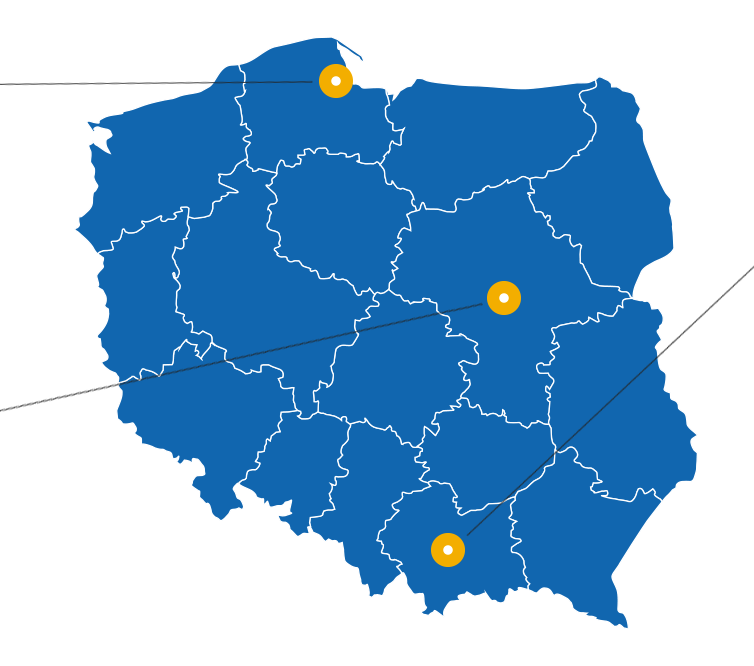Introduction
Czechia, also known as the Czech Republic, is one of Central Europe’s most stable and business-friendly economies. Thanks to its strong industrial base, educated workforce, and central location, the country is often referred to as the “Heart of Europe.” For investors and businesses looking to expand into the European Union, Czechia offers a unique mix of opportunity, security, and accessibility.
In the Czechia country profile, we, Valians experts, provide a comprehensive overview of Czechia’s economy, investment environment, labor market, tax system, and key growth sectors. It is designed to give business leaders and SMEs practical insights into why Czechia remains an attractive destination for foreign direct investment (FDI).
Table of Contents
Czech Republic: Heart of Europe
Strategically located in the center of Europe, Czechia borders Germany, Poland, Slovakia, and Austria. Its position makes it a critical gateway between Western and Eastern Europe.

Czechia is a parliamentary democracy with a liberal political system based on free competition of political parties. It is a member of the European Union (EU), NATO, OECD, and the Visegrád Group (V4). This international integration ensures a business-friendly legal framework and geopolitical stability.
| Factor | Details |
| Capital | Prague |
| Language | Czech |
| Currency | Czech koruna (CZK) 1EUR = 24.5CZK (August 2025) |
| Population (2024) | 10,882,164 (World Bank) |
| GDP growth (2024) | 1.1% (World Bank) |
| Inflation (2024) | 2.4% (World Bank) |
| Unemployment rate (2023) | 2.6% (World Bank) |
| Global membership | EU, NATO, OECD, V4, and other international organizations. |
| Infrastructure | Dense motorway and railway network. 5 international airports. Direct links to major EU seaports. |
| Labor Force | Educated workforce: 21% of university graduates in technical & ICT fields. |
Why Country Czechia is a Great Place for Investment
Foreign investors increasingly view Czechia country as one of Central Europe’s safest and most rewarding destinations, thanks to its mix of stability, location, and opportunity.

Strategic Location and Infrastructure
Czechia’s central location provides easy access to major EU markets. Prague Václav Havel Airport and four regional airports connect the country to Europe and beyond. Through Germany, Czechia country also benefits from access to ports such as Hamburg and Bremerhaven. A dense motorway and rail network make it a logistics hub in Central Europe.
Educated and Competitive Workforce
A highly skilled workforce is one of Czechia’s strongest assets for foreign investors. The country’s labor force is highly skilled, with strengths in engineering, IT, and industrial design.
Indeed, around 21% of graduates specialize in ICT, engineering, or technical fields, which is higher than the EU average. English proficiency among graduates is high, enabling integration into multinational teams.
Besides, according to Statistic Eurostat 2024, over 70% of young Czechs complete secondary or tertiary education.
Wages remain lower than in Germany or Austria: average monthly gross wage ~CZK 44,000 (≈ EUR 1,750) in 2024, vs Germany ~EUR 4,100, while productivity levels are high. As a results, Czechia consistently ranks in the top 20 for technical skills in the Global Talent Competitiveness Index.
Investor takeaway:
Czechia offers a cost-to-skill advantage unmatched in Western Europe, attracting manufacturing, IT, and shared service centers.
Investment Protection
Czechia offers strong investment security. Bilateral investment treaties with more than 80 countries guarantee non-discrimination, legal protection, and free transfer of profits. The country also adheres to EU investment and competition regulations, ensuring transparency.
Stable Political and Economic Environment
Stability in both politics and economics provides investors with confidence in long-term growth. With one of the lowest unemployment rates in the EU and steady GDP growth, Czechia country provides a secure foundation for long-term investments.
- The Czech Republic ranks 32nd out of 180 countries in Transparency International’s Corruption Perceptions Index (2024), ahead of most of its regional peers.
- The inflation rate dropped to 2.4% in 2024, back within the central bank’s target after energy shocks.
- GDP growth in 2024 was 1.1%. It is projected to 2.6% in 2025 (OECD), supported by EU funds and industrial recovery.
Furthermore, as an EU and NATO member, it enjoys geopolitical security.
Investor takeaway:
Low inflation, political predictability, and eurozone proximity make Czechia one of Central Europe’s safest bets.
Foreign Direct Investment in Czechia: Developments and Trends
FDI plays a critical role in the economy of Czechia Republic. According to the Czech National Bank, FDI inflows exceeded USD 11.5 billion in 2024, driven by manufacturing, R&D, and shared service centers.

Legal Environment
A transparent and EU-aligned legal system gives investors protection and predictability.
Czechia’s legal framework is harmonized with EU law.
- Foreign and local investors have equal rights.
- Czechia has bilateral investment treaties with 80+ countries, ensuring protection against expropriation and guaranteeing profit repatriation.
- Business setup is straightforward: a limited liability company (s.r.o.) can be registered in ~10–15 days.
- Intellectual property rights are harmonized with EU law, protecting patents, trademarks, and designs.
- The Czech Commercial Code provides clear corporate governance rules.
Investor takeaway:
The legal framework is familiar to EU investors and transparent for non-EU investors, lowering entry risks.
Czech Labor Market
The labor market is characterized by low unemployment (2.6%) and a strong supply of technically skilled workers. However, labor shortages in specialized industries create opportunities for training and automation. Foreign companies benefit from transparent labor laws aligned with EU directives.
Investment Incentives
The Czech government actively supports FDI through tax breaks and grants. Under Act No. 210/2019 Coll., eligible investors can apply for:
- Corporate income tax relief: Up to 10 years.
- Cash grants: For job creation, employee training, R&D projects, and training in high-unemployment regions
- High-tech incentives: Priority given to AI, green energy, robotics, and digital manufacturing.
- Regional incentives: Higher aid intensity in less developed regions (up to 25–30% of eligible costs).
- Application process: Submit via CzechInvest, which evaluates project eligibility.
Investor takeaway: Well-structured incentives reduce entry costs and speed up investment payback.
Finance: Investment Incentives and EU Funds
Czech country incentives help reduce initial costs and encourage innovation. Corporate tax breaks, employment subsidies, and financial support for strategic projects are all available to qualifying investors.
In addition, EU membership provides Czechia with powerful funding opportunities.
- EU structural funds (2021–2027): Czechia allocated ~EUR 23 billion.
- Cohesion fund: Focus on infrastructure and environment.
- Horizon Europe: Research and innovation funding.
- Digital Europe programme: Boosts digitalization.
- ERDF (European Regional Development Fund): Enhances innovation and SME competitiveness.
Billions of euros are available for Czech projects each year, making EU co-financing a powerful tool for investors.
Research and Development in Czechia
Czechia is investing in Industry 4.0, smart manufacturing, and AI adoption. National strategies prioritize robotics, automation, and digital infrastructure. Companies like Avast, Skoda Auto, and Honeywell run R&D centers in Czechia.
The country hosts top-tier research centers, including the ELI Beamlines laser facility and BIOCEV biotechnology hub. Partnerships between academia and private companies accelerate applied research and commercialization.
Czech Tax Environment
Czechia offers one of the most competitive tax systems in Central Europe.
- Corporate income tax (CIT): 21% updated 2025 (lower than Slovakia 23%, same as Poland 21%, higher than Hungary 9%).
- R&D tax deduction: Up to 200% of eligible expenses.
- Personal income tax (PIT): Flat 15%, with 23% solidarity surcharge above ~EUR 7,500/month.
- VAT: 21% standard, 15% and 10% reduced.
- Dividend withholding tax: 15%, but exemptions under EU directives.
Investor takeaway:
Transfer pricing rules comply with OECD guidelines, ensuring transparency. Tax rates are competitive in the V4 region, especially when combined with R&D deductions. Hungary’s 9% CIT is lower, but Czechia offers more stable governance and stronger EU integration.
Top 13 Sectors for Investment
Several high-growth sectors make Czechia country a diversified investment hub.
Automotive industry
Czechia is Europe’s 5th largest car producer, with EV battery plants planned in 2026. Skoda Auto leads, with Germany and South Korea as key investors.
Mobility & logistics
Focus on smart mobility, rail modernization, and green logistics. The ambitious high-speed railway (HSR) network aims to significantly reduce travel times between major cities in the Czech Republic and neighboring countries.
Defence & aerospace
NATO demand fuels growth. U.S. and French companies invest in military contracts.
Aviation
Strong MRO (maintenance, repair, operations) sector. Prague Airport MRO hubs attract EU carriers.
Advanced industrial technologies
Robotics, nanotechnology, and industry 4.0 supported by EU Horizon funding.
HealthTech
Biotechnology, medical devices, and pharmaceuticals expanding rapidly. Pharma exports worth EUR 2.8 billion (2024), with Swiss and German firms leading.
Artificial Intelligence (AI)
Start-ups and hubs in Prague and Brno leading innovation; backed by Microsoft and IBM research centers.
Creative industries
Design, gaming, and audiovisual services thriving. Czech gaming studios generate EUR 350 million annually.
EcoTech
Renewable energy, hydrogen, and waste management solutions. Hydrogen and renewables supported by EUR 2 billion EU Green Deal funding.
Chemical industry
Specialties for automotive and electronics supply chains. BASF and other multinationals established production.
Business support services
SSCs and BPO centers growing in Prague and Brno. 350+ SSCs, employing ~120,000 people.
Banking & Finance
Strong EU-integrated financial services; fintech on the rise. Czechia integrated into EU system, fintech adoption accelerating.
Semiconductors
New chip R&D and production sites supported by Taiwan and South Korea investment.
Investor takeaway:
Czechia offers sector diversity with both traditional industries (automotive, chemicals) and future-facing sectors (AI, EcoTech, semiconductors).
For investors considering a broader Central and Eastern European strategy, the Republic of Czechia pairs well with neighboring markets. You may also be interested in our detailed Poland Market Outlook 2026for complementary insights into opportunities across the region.
Conclusion: Look Ahead
Czechia enters 2026 as one of Central Europe’s most promising investment destinations. Its mix of stability, skilled workforce, EU membership, and innovation-friendly environment makes it an attractive choice for global investors.
With a competitive tax system, strong FDI incentives, and access to EU markets, the country offers both short-term advantages and long-term growth prospects. Investors exploring automotive, green technologies, digital innovation, or advanced manufacturing will find Czechia a resilient and strategic partner.
📩 Ready to explore opportunities in Czechia?
We, Valians, will accompany you at each stage of your project.
- Market research and Market Intelligence;
- Business development and key account management;
- Purchasing, subcontracting, sourcing;
- And more.
Connect us now by phone (0048)12 631 12 89 or email us via: valians@valians-international.com for tailored research, investment guidance, and market entry support.
Suggested Topics:
Latest Posts
- WEBINAR: Taking off in Poland’s aerospace sector 17.02.2026 at 15:00 (UTC)17.02.2026 15:00 – 16:00 (UTC) Are you active in the aerospace sector? Did you know that Poland has become a … Continue reading WEBINAR: Taking off in Poland’s aerospace sector 17.02.2026 at 15:00 (UTC)
- [Webinar Recap] Poland in Motion 2026: Growth Drivers & Export OpportunitiesTable of Contents If you’ve been keeping an eye on European markets, you’ll know that Poland is no longer just … Continue reading [Webinar Recap] Poland in Motion 2026: Growth Drivers & Export Opportunities
- Growth in Poland & unlock the CEE region from Valians International InsightsDiscover key sectors, risks, and success factors for expanding into Poland and CEE, with expert insights from Valians International.
- Poland Import Regulations 2026: What Every Business Must KnowUnderstand Poland import regulations in 2026. Learn customs rules, VAT, KSeF, SENT, duties, and compliance requirements for importing into the EU.
- Supply Chain Diversification in CEE: New Resilience Hub for Global ManufacturersDiscover why supply chain diversification in CEE is accelerating. Explore key advantages, industry trends, and strategic insights for building resilient operations in Europe 2026.



 (0048) 12 631 12 89
(0048) 12 631 12 89 



 (0048) 12 631 12 89
(0048) 12 631 12 89

